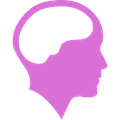
- anyone working in team
- business & people managers dealing with teams
- open training or in-company
- 1 day
- up to 12 participants
- interactive knowledge transfer
- analysing and learning from practical examples
- working on your own cases

"A very engaging session of the effects of unconscious bias. Even in a large group the trainer manages to get participants to share their personal experiences with stereotypical thinking."
Adel Mouchalleh, Expert Communication, VDAB East-Flanders

"Une formation superbe. Tout était bien préparé. Bons outils pédagogiques."
Anonyme, formation pour Actiris
A new colleague comes to introduce herself. In a few seconds, we have formed an opinion on her. It happens fast and unconsciously. As human beings, we are all biased in our thinking. Unconscious bias in itself is not good or bad, preconceptions are simply part of how we think. But even though we are not aware of our biases, we also act according to them in our daily lives, at home and at work. And that is a problem. Because it leads to misunderstandings and frustrations in teams and organisations.
If the new colleague is very different, we will be less inclined to ask her to come along for lunch. Instead, we will notice clearly all the mistakes she is making. With colleagues more similar to us, those mistakes do not catch our eye at all, or we turn a blind eye to them ("after all, we were beginners once ourselves"). When we are looking for advice or input, we tend to go to those colleagues with whom we feel most familiar. And in that way we manage to reconfirm our own opinion. Our team may be diverse, but we don't think and act inclusively. The diversity in our team is not perceived as an added value.
Dealing with difference between myself and the other, in a team or organisation, is not self-evident. It requires specific knowledge and skills. But it is well worth it.
In an open work culture where everyone feels they can be themselves and at the same time be an integral part of the team, employees are more satisfied. They think more innovatively and make better decisions.
This workshop is about unconscious bias in the workplace. Who am I versus the other? And what effect does this have on my actions in a team? How do I deal with difference in a respectful way? How do I communicate inclusively and avoid misunderstandings and frustrations?